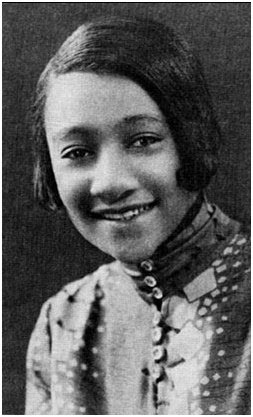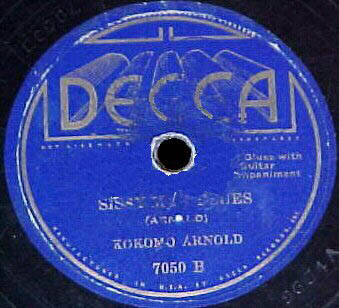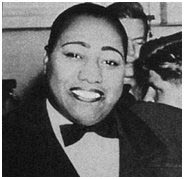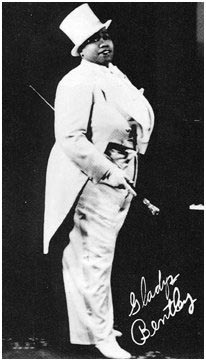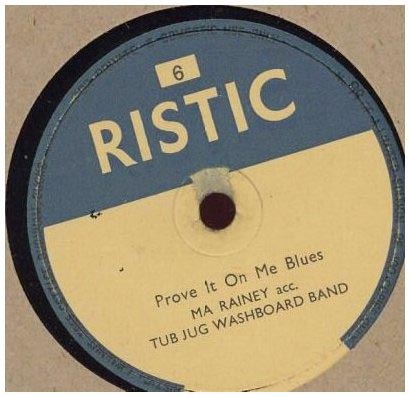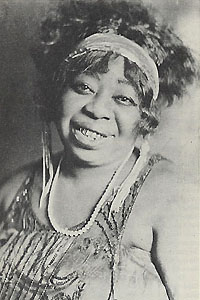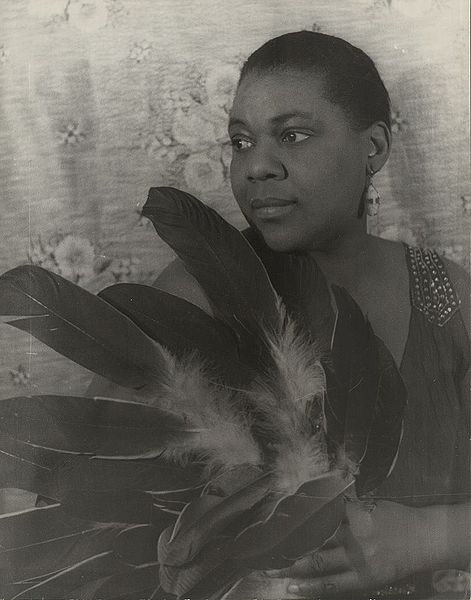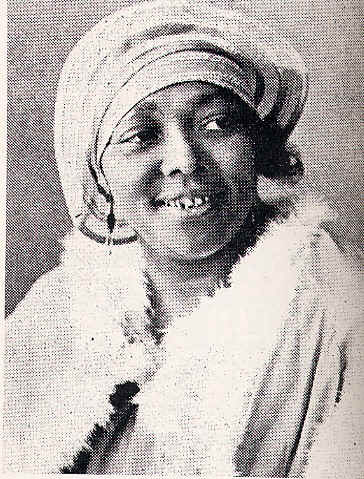Singing the Blues: Masculine Female Performers
The Popularity of Masculine Female Blues Singers
Masculine blues singers also enjoyed an important popularity in Bronzeville’s cabarets.
Blues singers, such as Gladys Bentley, Alberta Hunter, George Hanna, and ‘Ma’ Rainey, who were all popular at the end of the 1930’s, often performed in Chicago and had recorded numerous sexually explicit songs that included descriptions of homosexual acts.
Gay Blues?
The sissies and “bulldaggers” mentioned in the blues were ridiculed for their cross gender behavior, but neither shunned nor hated. In “Boy in the Boat” for example, the author counseled, “When you see two women walking hand in hand, just shake your head and try to understand.”
In fact, the casualness toward sexuality, so common in the blues, sometimes extended to homosexual behavior. In “Sissy Man Blues,” a traditional tune recorded by numerous male blues singers, the singer demanded, “If you can’t bring a woman, bring me a sissy man.”
The blues reflected a culture that accepted sexuality, including homosexual behavior and identities, as a natural part of life.
Gladys Bentley
Gertrude Ma Rainey
In 1928, Gertrude ‘Ma’ Rainey, a South Side resident, stated in a song she wrote entitled “Prove it on Me Blues,” that “she [wore] a collar an tie,” and “talk[ed] to the gals just like any old man.”
They said I do it, ain't nobody caught me
Sure got to prove it on me
Went out last night with a crowd of my friends
They must've been women, 'cause I don't like no men
It's true I wear a collar and a tie...
Talk to the gals just like any old man...
A 1928 advertisement for this recording in the Chicago Defender illustrated these verses with a drawing of voluptuous woman (Rainey) wearing a jacket and tie, chatting with two very feminine women. The advertisement suggested “scandal” by directing the audience’s eyes toward a police officer who watched the women from across the street.
In “Sissy Blues,” Ma Rainey complained of her husband’s infidelity with a homosexual named “Miss Kate.”
I came in last night I'm going home tonight, I won't no more "Hello, Central, it's 'bout to run me wild Can I get that number, or will I have to wait a while?" I dreamed last night I was far from harm Woke up and found my man in a sissy's arms "Hello, Central, it's 'bout to run me wild Can I get that number, or will I have to wait a while?" Some are young, some are old My man says sissy's got good jelly roll My man got a sissy, his name is Miss Kate He shook that thing like jelly on a plate "Hello, Central, it's 'bout to run me wild Can I get that number, or will I have to wait a while?" Now all the people ask me why I'm all alone A sissy shook that thing and took my man from me
Bessie Smith
“There’s two things got me puzzled, there’s two things I don’t understand,” moaned blues singer Bessie Smith in "Foolish Man Blues," “that’s a mannish acting woman and a lisping, swishing, womanish-acting man.”
Lucille Bogan
Lucille Bogan, in her “B.D. Women Blues,” warned that “B.D. women sure [were] rough” because “they dr[a]nk up many a whiskey and they sure [could] strut their stuff.”
